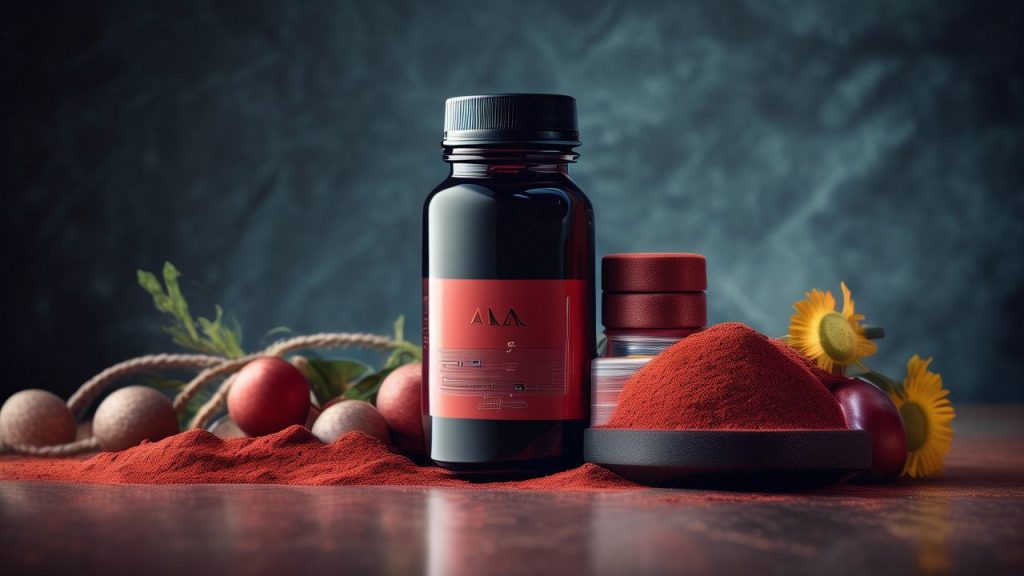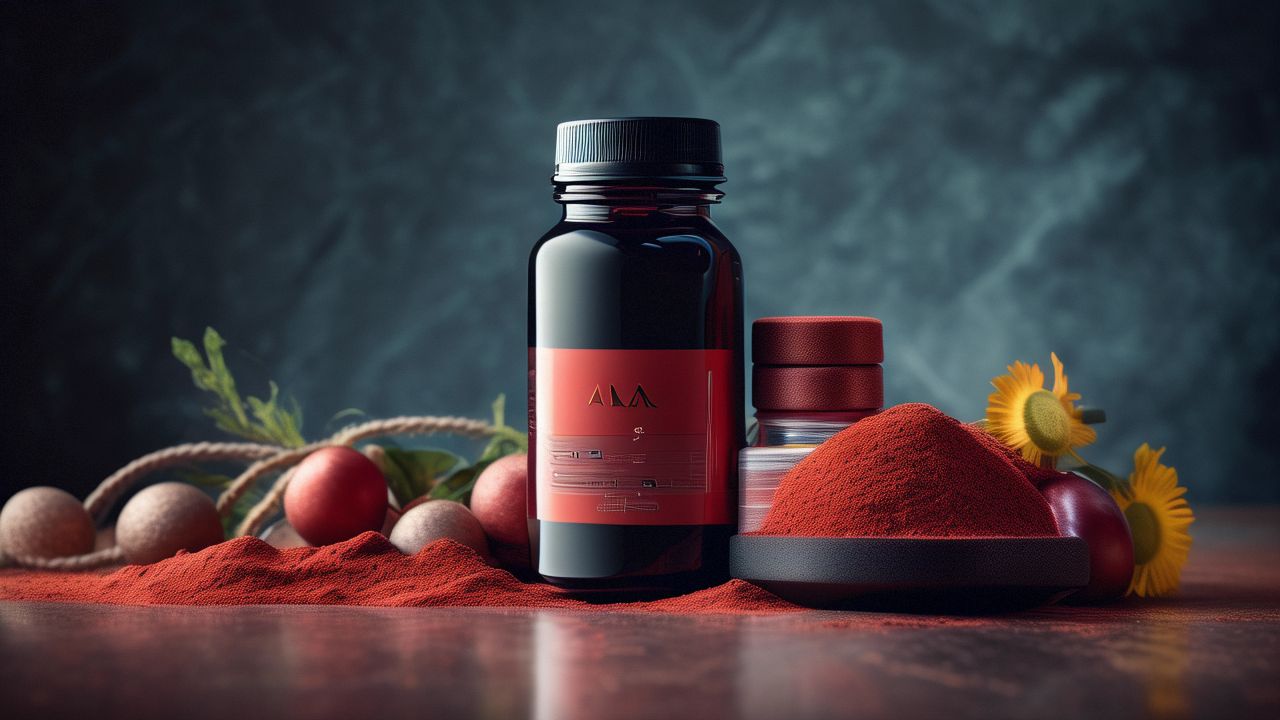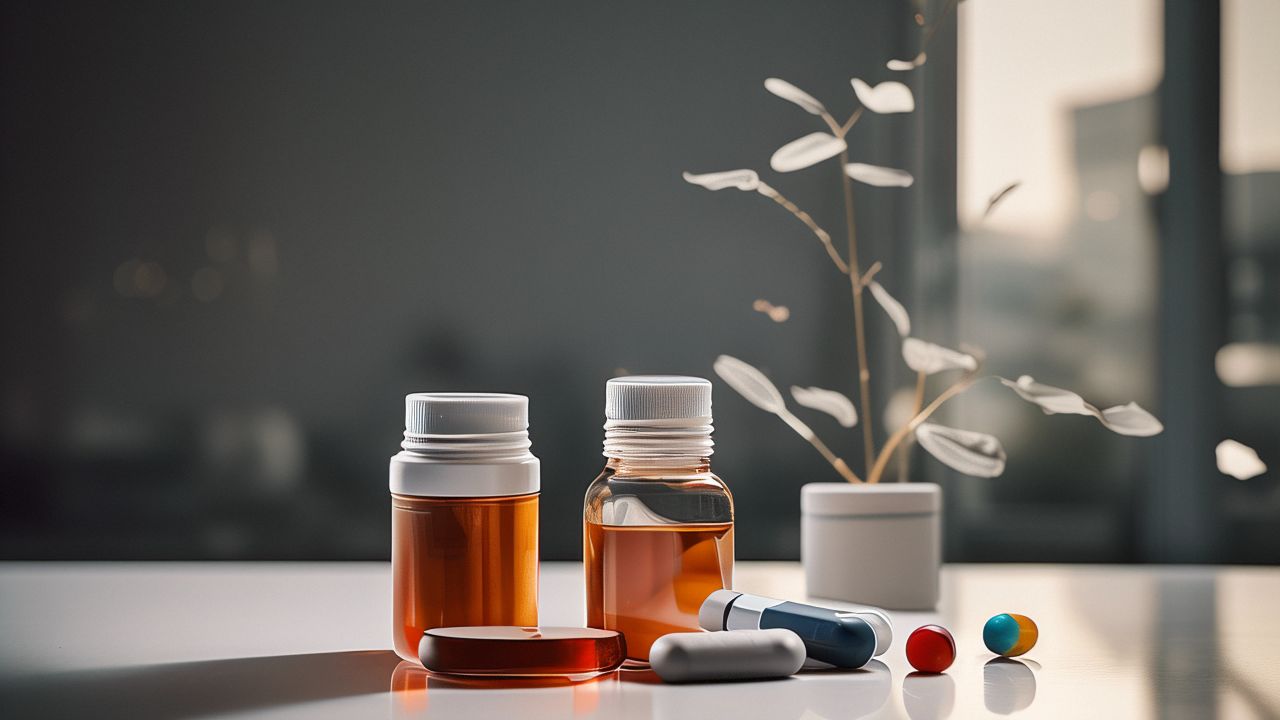5 best testosterone booster:D-aspartic acid,Fenugreek,Tribulus terrestris,Vitamin D and Zinc
The term “best testosterone booster” refers to a range of supplements marketed to naturally increase the levels of the hormone testosterone in the body.
Testosterone is a key hormone in males, responsible for the development of male sexual characteristics and regulation of secondary sexual traits. It plays a crucial role in libido, muscle mass, bone density, and the production of red blood cells.
Testosterone boosters claim to achieve this by using various natural ingredients that are believed to stimulate the body’s own production of testosterone. These ingredients often include herbs, minerals, and amino acids, and are usually available over the counter in the form of capsules, tablets, powders, or gels.
The effectiveness of these supplements is a subject of ongoing debate and scientific research. While some studies suggest certain ingredients may have a positive effect on testosterone levels, others find no significant impact. It’s also important to note that the Food and Drug Administration (FDA) does not regulate supplements in the same way as it does prescription medications, so their quality and contents can vary widely.
Common ingredients found in testosterone boosters include:
Best testosterone booster: D-aspartic acid
An amino acid that may help in the release of luteinizing hormone, which can stimulate the production of testosterone.

The potential mechanism:
- Stimulation of Gonadotropin-Releasing Hormone (GnRH): D-aspartic acid is believed to affect the release of gonadotropin-releasing hormone from the hypothalamus. GnRH is a peptide hormone that stimulates the release of luteinizing hormone (LH) from the pituitary gland.
- Increase in Luteinizing Hormone (LH): LH is a glycoprotein hormone that plays a crucial role in the regulation of reproductive function. In males, LH stimulates the Leydig cells in the testes to produce testosterone.
3.Enhanced Testosterone Synthesis: By increasing LH levels, D-aspartic acid may indirectly stimulate the Leydig cells to produce and release more testosterone.
The exact mechanism of action for D-aspartic acid is not fully understood, and research on its effectiveness in stimulating testosterone production is somewhat limited and has produced mixed results. Some studies have shown that D-aspartic acid supplementation can increase testosterone levels in humans and animals, while others have not found a significant effect.
Additionally, any increase in testosterone levels may be dose-dependent and may not be sustained over long periods, as the body may adjust to the supplementation. Furthermore, individual responses to D-aspartic acid can vary, and not everyone may experience an increase in testosterone levels.
Best testosterone booster: Fenugreek
Fenugreek is a plant that has been used in traditional medicine for various health purposes, including as a potential testosterone booster. The seeds of the fenugreek plant are the most commonly used part in supplements and are believed to contain compounds that may influence testosterone levels.

How fenugreek might work to increase testosterone:
- Inhibition of Sex Hormone-Binding Globulin (SHBG): Testosterone in the blood can be bound to a protein called sex hormone-binding globulin (SHBG), which makes it biologically inactive. Fenugreek contains compounds that may bind to SHBG instead of testosterone, effectively increasing the amount of free, or bioavailable, testosterone in the body.
- Modulation of Hormone Pathways: Fenugreek contains saponins, which are natural compounds that have been suggested to have anabolic effects and may affect the production of certain hormones, including testosterone.
- Aphrodisiac Properties: Some research suggests that fenugreek may have aphrodisiac properties, which could indirectly influence sexual function and libido. Improved sexual function could be perceived as an increase in testosterone levels, although the actual testosterone production may not be significantly altered.
- Anti-inflammatory Effects: Chronic inflammation can negatively affect testosterone levels. Fenugreek has been shown to have anti-inflammatory properties, which may help support a healthier hormonal balance.
While some studies have indicated that fenugreek may have a positive effect on testosterone levels and related health parameters, the evidence is not conclusive, and more research is needed to fully understand its mechanism of action and effectiveness. Additionally, individual responses to fenugreek supplementation can vary.
Best testosterone booster: Tribulus terrestris
Tribulus terrestris is a plant that has been used in traditional medicine, particularly in Chinese and Ayurvedic systems, for a variety of conditions, including sexual dysfunction and infertility. It is often marketed as a natural testosterone booster.
Theoretically, Tribulus terrestris is believed to work by stimulating the release of certain hormones that play a role in testosterone production.

How Tribulus terrestris might affect testosterone levels:
- Stimulation of Luteinizing Hormone (LH): Tribulus terrestris is thought to contain compounds that may increase the secretion of luteinizing hormone (LH) from the pituitary gland. LH is a hormone that signals the testes to produce more testosterone.
- Influence on Androgen Receptors: Some studies suggest that Tribulus terrestris may affect the density and sensitivity of androgen receptors, which could potentially enhance the effects of testosterone in the body.
- Dioscin and Protodioscin: The active compounds in Tribulus terrestris are thought to be dioscin and protodioscin, which are steroidal saponins. These compounds may have a direct or indirect effect on hormone levels, although the exact mechanism is not well understood.
Despite its long history of use and the claims of its effectiveness, scientific evidence supporting the testosterone-boosting effects of Tribulus terrestris is limited and inconclusive. Some studies have found no significant impact on testosterone levels or related health markers, while others have suggested a mild effect. Additionally, the quality and potency of Tribulus terrestris supplements can vary widely, which may affect their efficacy.
Best testosterone booster: Vitamin D:
Vitamin D deficiency has been linked to decreased testosterone levels, and the relationship between the two is thought to be multifaceted. Here’s how vitamin D deficiency might contribute to lower testosterone levels:
- Hormonal Pathways: Vitamin D is involved in the regulation of various hormonal pathways. It acts as a secosteroid hormone, which means it can affect the production and function of other hormones in the body, including testosterone.
- Influence on Gonadal Function: Vitamin D receptors are present in the gonads (testes in males), and vitamin D is involved in the synthesis of steroid hormones. A deficiency in vitamin D could disrupt the normal production of testosterone in the testes.
- Impact on Hypothalamic-Pituitary-Gonadal (HPG) Axis: Vitamin D may play a role in the regulation of the hypothalamic-pituitary-gonadal (HPG) axis, which is critical for the production of testosterone. Disruption of this axis due to vitamin D deficiency could lead to decreased testosterone production.
- Inflammation and Oxidative Stress: Vitamin D has been shown to have anti-inflammatory and antioxidant properties. Chronic inflammation and oxidative stress can negatively affect testosterone levels, and vitamin D deficiency may exacerbate these conditions, leading to a decline in testosterone.
- Metabolic Syndrome and Obesity: Vitamin D deficiency is often associated with metabolic syndrome and obesity, both of which are linked to lower testosterone levels. While the exact relationship is complex and not fully understood, vitamin D deficiency may contribute to the hormonal imbalances seen in these conditions.
- Gene Expression: Vitamin D can affect the expression of genes involved in steroidogenesis, the process by which the body produces steroids, including testosterone.
While there is an association between vitamin D deficiency and lower testosterone levels, this does not necessarily mean that vitamin D supplementation will significantly increase testosterone in all individuals. However, correcting a vitamin D deficiency is important for overall health and may have an impact on hormonal balance.
Best testosterone booster: Zinc
Zinc deficiency can lead to decreased testosterone levels due to the essential role that zinc plays in the synthesis and regulation of testosterone.
How zinc deficiency might contribute to lower testosterone:
- Enzyme Function: Zinc is a crucial component of several enzymes involved in the biosynthesis of testosterone, including steroid hydroxylases and aromatase. These enzymes are necessary for the conversion of cholesterol to testosterone and for the regulation of hormone levels. Without sufficient zinc, these enzymatic reactions may be impaired, leading to a decrease in testosterone production.
- Hormonal Signaling: Zinc is involved in the release of luteinizing hormone (LH) from the pituitary gland, which stimulates the Leydig cells in the testes to produce testosterone. Zinc deficiency may disrupt the signaling pathways that lead to LH release, thereby reducing testosterone production.
- Antioxidant Protection: Zinc has antioxidant properties and helps protect cells from oxidative stress. Oxidative stress can damage cells and tissues, including those involved in testosterone production. Zinc deficiency may therefore increase oxidative stress and contribute to a decline in testosterone levels.
- Gene Expression: Zinc is known to affect gene expression and is involved in the regulation of genes that encode for proteins involved in testosterone metabolism. A lack of zinc could alter the expression of these genes, potentially leading to decreased testosterone production.
- Testicular Function: Zinc is concentrated in the testes, indicating its importance in male reproductive function. Zinc deficiency can lead to structural and functional changes in the testes that may impair testosterone production.
Zinc deficiency is not uncommon, as the body does not store zinc for long periods, and it can be lost through sweat, urine, and other excretions. Additionally, zinc absorption can be affected by factors such as dietary intake, certain medications, and health conditions.
It’s important to approach testosterone boosters with caution. They can interact with other medications and may have side effects, especially if taken in high doses or for prolonged periods. Additionally, individuals with medical conditions, particularly those related to the liver or kidneys, should consult with a healthcare provider before taking any supplements.
People considering testosterone boosters should also be aware that there are lifestyle changes that can naturally increase testosterone, such as regular exercise (Jogging), a balanced diet, adequate sleep, and stress reduction.
Lastly, it’s worth noting that testosterone levels decline naturally with age, and for some, this decline may lead to health issues. If someone is experiencing symptoms related to low testosterone, it’s important to consult with a healthcare provider for proper diagnosis and treatment, which may include prescription testosterone replacement therapy.




